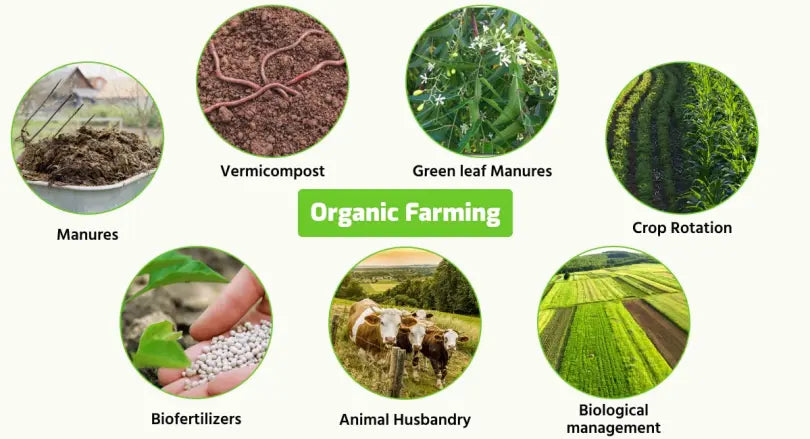
Disease Management in Organic Farming
Introduction
In the realm of organic farming, disease management stands as a critical pillar for ensuring crop health and yield. Unlike conventional methods relying on synthetic chemicals, organic farming emphasizes natural solutions and preventative measures. This blog explores the challenges organic farmers face, effective strategies for disease prevention and control, and the importance of sustainable practices in safeguarding both crops and the environment. Join us as we delve into the principles and practices that underpin successful disease management in organic agriculture.
Understanding Disease Management in Organic Farming
Overview of Disease Challenges in Organic Farming
Limited Chemical Options: Organic farming restricts the use of synthetic chemicals, making disease management more challenging.Diverse Pathogens: Organic crops are susceptible to a wide range of fungal, bacterial, and viral diseases.
Importance of Disease Management in Organic Farming
Crop Yield and Quality: Effective disease management is crucial for maintaining high yields and quality in organic produce.
Sustainability and Certification: Adhering to organic standards ensures sustainability and maintains certification status.
Preventative Measures in Organic Farming
Soil Health Management
Organic Amendments: Use compost, manure, and other organic matter to enhance soil fertility and microbial activity.Crop Rotation and Diversity: Implement crop rotation and intercropping to disrupt pest and disease cycles.
Sanitation and Hygiene
Clean Equipment: Regularly sanitize tools and equipment to prevent disease spread.Field Hygiene: Remove and destroy diseased plant material promptly.
Biological Control Methods
Natural Predators and Parasites
Beneficial Insects: Encourage the presence of beneficial insects like predatory beetles and parasitic wasps.

Microbial Agents: Apply microbial biocontrol agents like Bacillus subtilis and Trichoderma spp. to suppress pathogens.


Botanical Extracts
Neem and Garlic Extracts: Use botanical extracts with antifungal and antibacterial properties to protect plants.

Cultural and Mechanical Controls
Resistant Varieties
Disease-Resistant Seeds: Choose crop varieties that are resistant to prevalent diseases.Seed Treatments: Use organic seed treatments to enhance seedling vigor and disease resistance.
Mechanical Controls
Mulching: Apply organic mulches to suppress weeds and maintain soil moisture, reducing stress on plants.

Physical Barriers: Use row covers and nets to protect crops from insect vectors that spread diseases.
Regular Field Inspections
Scouting: Conduct regular scouting to identify early signs of disease.Record-Keeping: Maintain detailed records of disease incidence and management practices for future reference.
Diagnostic Tools and Techniques
Soil and Plant Testing: Use soil and plant tissue tests to detect nutrient deficiencies and pathogen presence.Visual Identification: Train farmers to recognize disease symptoms and take immediate action.
Summary
Disease management in organic farming requires a holistic approach that includes preventative measures, biological controls, and cultural practices. By focusing on soil health, biodiversity, and sustainable practices, organic farmers can effectively manage diseases and ensure healthy crop production.
FAQs:
What are the key disease management strategies in organic farming?How can I improve soil health to prevent diseases in my organic farm?
What are some effective biological controls for managing plant diseases organically?
